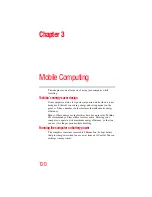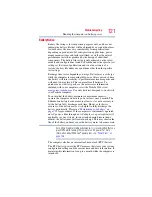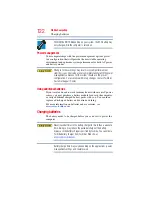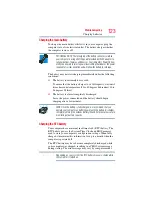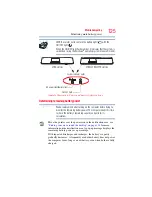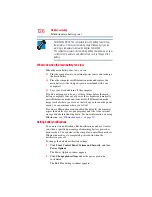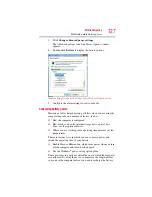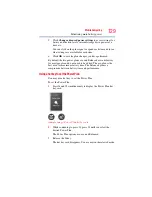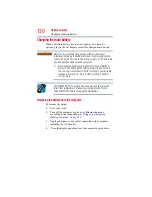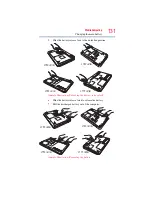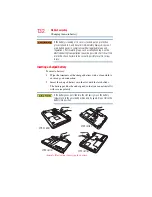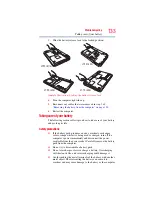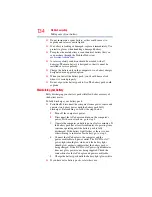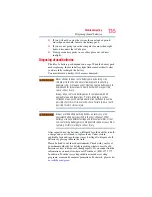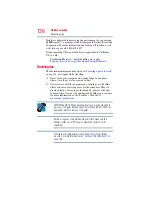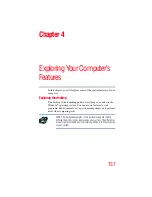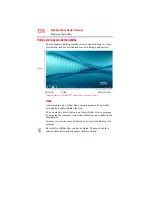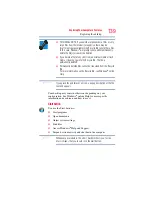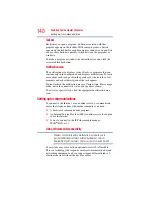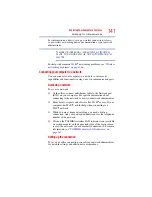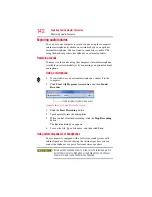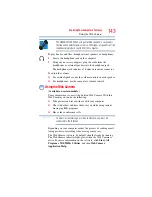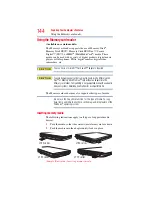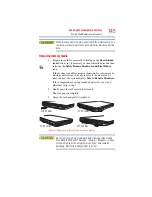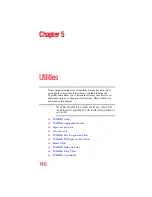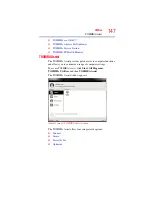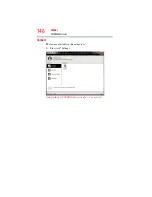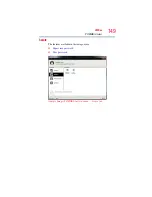
134
Mobile Computing
Taking care of your battery
❖
Do not incinerate a spent battery, as this could cause it to
explode and release caustic liquid.
❖
If a battery is leaking or damaged, replace it immediately. Use
protective gloves when handling a damaged battery.
❖
To replace the main battery, use an identical battery that you
can purchase through the Toshiba Web site at
❖
A reverse polarity condition should be avoided with all
batteries. The main battery is designed so that it cannot be
installed in reverse polarity.
❖
Charge the battery only in the computer or in a battery charger
designated as an approved option.
❖
When you install the battery pack, you should hear a click
when it is seated properly.
❖
Do not expose the battery pack to fire. The battery pack could
explode.
Maintaining your battery
Fully discharging your battery pack will allow better accuracy of
the battery meter.
To fully discharge your battery pack:
❖
Periodically, disconnect the computer from a power source and
operate it on battery power until the battery pack fully
discharges. Before doing so, follow the steps below:
1
Turn off the computer’s power.
2
Disconnect the AC adaptor and turn on the computer’s
power. If it does not turn on, go to step
4
.
3
Operate the computer on battery power for five minutes. If
the battery pack has at least five minutes of operating time,
continue operating until the battery pack is fully
discharged. If the battery light flashes or there is some
other warning to indicate a low battery, go to step
4
.
4
Connect the AC adaptor to the computer and the
power cord/cable to a power outlet. The DC-IN or AC
power-light should glow white, and the battery light
should glow amber to indicate that the battery pack is
being charged. If the DC-IN or AC power-light indicator
does not glow, power is not being supplied. Check the
connections for the AC adaptor and power cord/cable.
5
Charge the battery pack until the battery light glows white.
❖
If you have extra battery packs, rotate their use.

